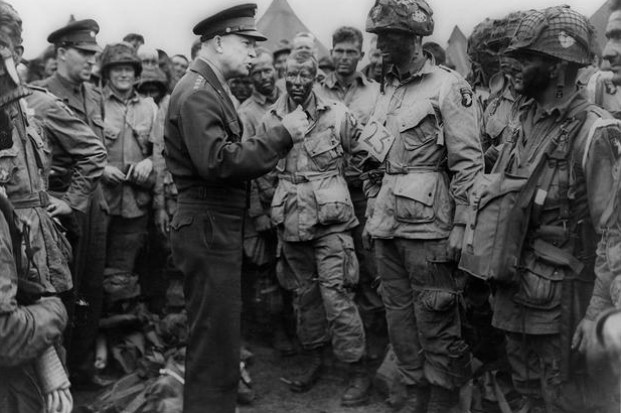A Leader’s Burden: General Eisenhower and the Letter Before D-Day
On June 5th, 1944, one day prior to the largest seaborne invasion in history, General Dwight D. Eisenhower penned a brief, potent letter. With great trepidation and acceptance of the burden of leadership, Eisenhower composed a note that would only see the light of day if the D-Day invasion failed.
The text of this message read:
“Our landings in the Cherbourg-Havre area have failed to gain a satisfactory foothold and I have withdrawn the troops. My decision to attack at this time and place was based upon the best information available. The troops, the air and the Navy did all that Bravery and devotion to duty could do. If any blame or fault attaches to the attempt it is mine alone.”
Eisenhower wrote this letter to assume full responsibility in case of failure, embodying the quintessential aspects of accountability and leadership. He believed that it was his duty to shoulder the burden of potential failure as he was the Supreme Allied Commander in Europe. The letter was written as the invasion was unfolding, reflecting the critical juncture at which the Allies found themselves. They had invested massive resources and manpower in the operation, the failure of which would have had devastating consequences for the outcome of World War II.
The note remained hidden from public view, tucked away in his wallet until its existence was revealed years later in 1961, as part of the annals of his Presidential Library. In the eventual course of the war, the note became a historical artifact rather than a public declaration of defeat, as the D-Day invasion was successful, marking a significant turning point in the tide of the war.
The significance of Eisenhower’s letter is multifold. First, it serves as a timeless reminder of the weighty burden of leadership, especially in situations of existential significance. Second, it embodies the principle of ‘servant leadership’, a management philosophy that emphasizes the leader’s role as steward of the resources provided by the organization. This is evident in Eisenhower’s readiness to accept blame while lauding the bravery and devotion of the troops under his command.
Moreover, from a historical perspective, the letter encapsulates the high stakes and uncertainty surrounding the D-Day invasion. It also offers us an intimate look into Eisenhower’s character. Despite his heroic image and eventual presidential stature, he was willing to expose his vulnerabilities and acknowledge the possibility of failure.
In the grand scheme of World War II, Eisenhower’s ‘In Case of Failure’ note might seem a small detail. However, its symbolic value transcends the boundaries of that war. It’s a testament to Eisenhower’s leadership, to the soldiers who fought on those bloody beaches, and to the reality that victory in any great endeavor is never guaranteed. It reminds us that even amidst the chaos of war, the principles of accountability and respect for the valiant efforts of all involved remain central to any leader’s mission.
So, as we reflect on the chronicles of World War II, we must remember that history is not just about grand strategies and heroic battles. It is also about individuals, like Eisenhower, who grappled with their fears and responsibilities, and in doing so, etched their indelible marks on the annals of history. This humble note, hidden in a wallet and never needed, is a poignant echo of a leader’s readiness to bear the burden of failure, underscoring the human dimension of war and leadership.
